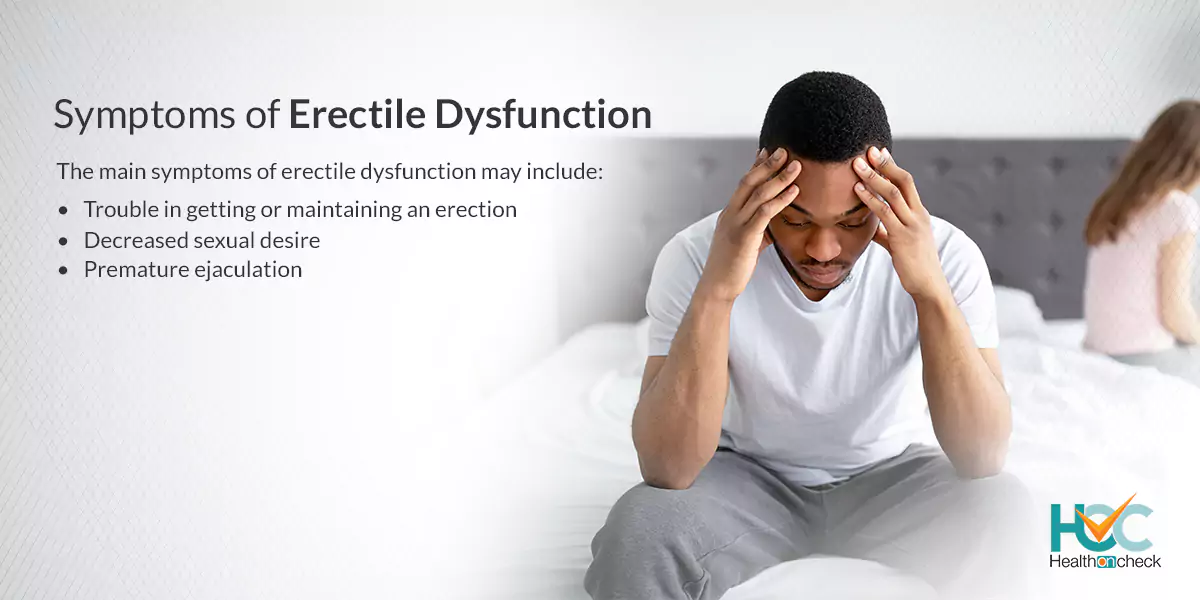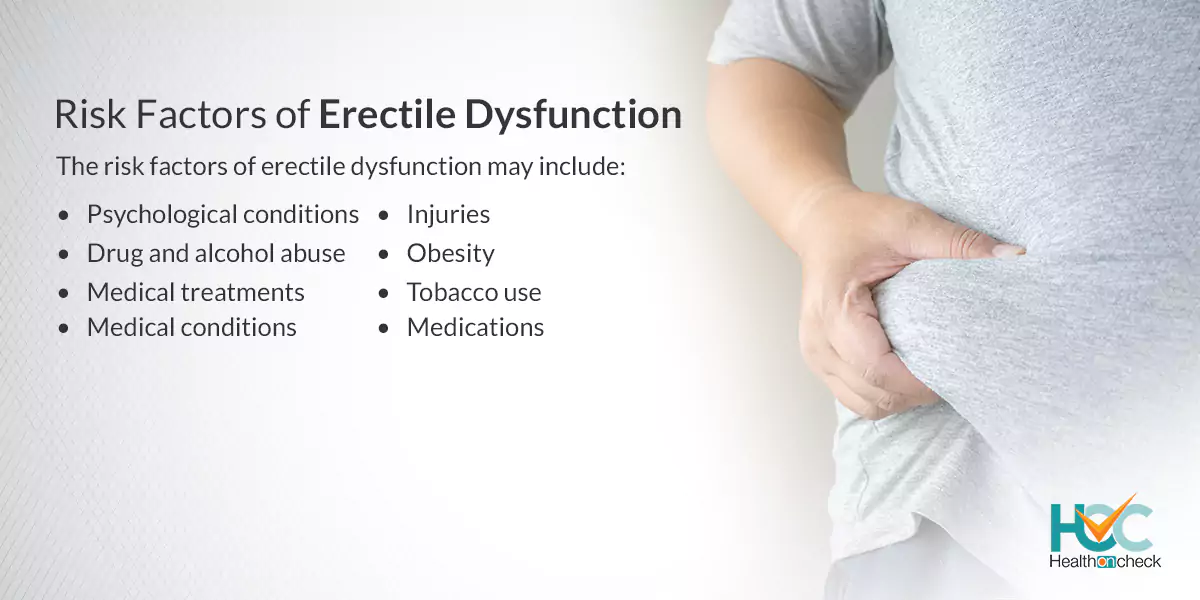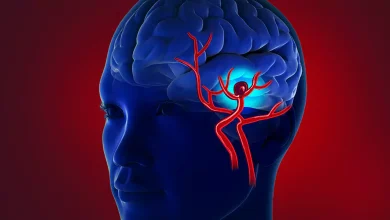All about Erectile Dysfunction?

What is Erectile Dysfunction?
Erectile dysfunction commonly referred to as ED is a condition where the sexual organ of males is unable to get the firm erection needed for sexual intercourse. Not getting a proper erection sometimes is very common and it happens to almost all men but if it continues for a long period and is an ongoing issue, then it comes under the category of erectile dysfunction and is a thing of concern as it can affect your sexual life adversely and may cause stress, affect your self-confidence and contribute to relationship problems.
What are the Types of Erectile Dysfunction?
There are two types of erectile dysfunction (ED)
Primary ED: It is a rare type of erectile dysfunction where the affected person has never been able to attain or sustain an erection. The main causes of erectile dysfunction here are guilt, fear of intimacy, depression, or anxiety.
Secondary ED: It is quite a common type of erectile dysfunction which is acquired later in life by someone who previously was able to attain erections. Here the causes may relate to performance anxiety, stress, or depression.

What are the Symptoms of Erectile Dysfunction?
The main symptoms of erectile dysfunction may include:
- Trouble in getting or maintaining an erection
- Decreased sexual desire
- Premature ejaculation
What are the Causes of Erectile Dysfunction?
Sexual arousal among men is a complex procedure where various factors such as the brain, hormones, nerves, emotions, muscles, and blood vessels are involved and any malfunction in any of these factors can cause erectile dysfunction. Stress and mental health issues can cause and worsen erectile dysfunction. Performance anxiety is also one of the main causes of erectile dysfunction.
Some of the main causes of erectile dysfunction may include:
Vascular Disease: One may suffer from ED if the supply of blood into the penis is blocked or narrowed because of a vascular disease like atherosclerosis (hardening of the arteries).
Neurological Disorders: Damage in the nerves that send impulses to the penis because of stroke, diabetes, or other causes may lead to ED.
Psychological Factors: Various psychological factors including stress, depression, lack of stimulus from the brain, and performance anxiety can cause ED.
Trauma: An injury in the sensitive areas connected to your sexual organ can cause ED.
Medications: Various medicines are used to treat some other conditions that may cause ED. Some common medications that may cause erectile dysfunction are Diuretics (pills that cause increase urine flow), Anti hypertensives (high blood pressure drugs), and Antihistamines. Antidepressants, Parkinson’s disease drugs, etc.
Alcohol: Many times drinking excess alcohol can cause ED.
Recreational Drugs and Tobacco Usage: Using recreational drugs like marijuana, cocaine, marijuana, methadone, nicotine, and opiates can lead to ED. Taking tobacco in the form of cigarettes or chewing tobacco can also cause erectile dysfunction. These substances not only adversely affect and often suppress the central nervous system, but can also lead to severe damage to the blood vessels, and cause permanent ED.
Other Diseases: Various diseases such as heart disease, clogged blood vessels (atherosclerosis), high cholesterol, high blood pressure, diabetes, obesity, metabolic syndrome, high insulin levels, body fat around the waist, high cholesterol, Parkinson’s disease, and multiple sclerosis can be the reasons for ED.

What are the Risk Factors of Erectile Dysfunction?
The risk factors of erectile dysfunction may include:
Medical conditions: People suffering from other medical conditions particularly diabetes or heart conditions have a high chance of developing erectile dysfunction.
Tobacco use: Using tobacco hinders the flow of blood to veins and arteries, and over a period of time may cause chronic health conditions that can result in erectile dysfunction
Obesity: Being overweight can cause ED.
Medical treatments: Certain medical treatments like prostate surgery or radiation treatment for cancer may increase the risk of erectile dysfunction.
Injuries: if you suffered an injury that harmed the nerves or arteries that control erections increase the risk of erectile dysfunction.
Medications: Some medicines especially antidepressants, antihistamines, and medications to treat high blood pressure, pain or prostate conditions can lead to erectile dysfunction
Psychological conditions: If you are suffering from mental health issues such as stress, anxiety, or depression then your risk of developing erectile dysfunction increases.
Drug and alcohol abuse: Long-term use of drugs or drinking alcohol can cause ED, sometimes even permanently
What are the Complications of Erectile Dysfunction?
The complications of erectile dysfunction may include:
- An unsatisfactory sex life
- Anxiety
- Stress
- Depression
- Feeling of embarrassment
- Low self-esteem
- Problems in romantic relationships
- Not being able to make your partner pregnant
How to Diagnose Erectile Dysfunction?
The diagnosis of erectile dysfunction starts with a physical examination and answering questions and the doctor will be able to detect if you have ED or not and start treatment accordingly.
In some cases there may be some underlying health condition and to detect it, your doctor may prescribe you some tests that may include:
Physical exam: This process may include a detailed check-up of your penis and testicles and examining your nerves for sensation. It may help to detect if there is any problem in your penis that is causing erectile dysfunction.
Blood tests: Here a sample of your blood is taken and sent to a lab to detect symptoms of heart disease, diabetes, low testosterone levels, and other health issues.
Urine tests (urinalysis): Urine tests are done to check for signs of diabetes and other underlying health problems that may trigger ED.
Ultrasound: Ultrasound is generally done by a specialist and involves using a wandlike device (transducer) held over vessels that supply blood to the penis. A video image is created that lets your doctor check if you have blood flow problems.
Sometimes this test is combined with an injection of medications into the penis to stimulate blood flow and create an erection.
Psychological test: Here your doctor will prepare a questionnaire that you need to answer. It helps to detect depression and other possible psychological causes of erectile dysfunction
What are the Treatment Options Available for Erectile Dysfunction?
The treatment options for erectile dysfunction may include:
Oral medications: Oral medications for erectile dysfunction treatment mostly include Sildenafil (Viagra), Tadalafil (Adcirca, Cialis), Vardenafil (Levitra, Staxyn), and Avanafil (Stendra)
Apart from oral medications, some other medications to treat ED are:
Alprostadil self-injection: Here an injection with alprostadil (Caverject, Edex) is injected into the base or side of your penis. In some instances, medications that are usually used for other disorders are used for penile injections on their own or combined with alprostadil and phentolamine. These combination medications generally are known as bimix (if two medicines are used) or trimix (if three medicines are used).
Alprostadil urethral suppository: In alprostadil intraurethral therapy a tiny alprostadil suppository is placed inside your penis in the penile urethra and a special applicator is inserted into your penile urethra to cure the problem of erectile dysfunction.
Testosterone replacement: Some people have erectile dysfunction that might be complicated by low levels of the Hormone testosterone causes ED in some people and such cases, testosterone replacement therapy might be applied as the first step that may help to treat ED.
Penis pumps, surgery, and implants are used sometimes to make your penis erect but they are not common as in most cases erectile dysfunction can be treated with medications and other procedures mentioned earlier.
Exercise: According to researchers certain exercises, especially moderate to vigorous aerobic activity, help to improve erectile dysfunction.
Psychological counseling: If mental issues such as stress, anxiety, or depression — or the condition are causing erectile dysfunction in you then psychological counseling can help to ease the symptoms of ED.
Living with Erectile Dysfunction
People suffering from erectile dysfunction may go through lots of problems in their lives, especially in their relationships as they are not able to satisfy their partner sexually which can create tension among the couples. Erectile dysfunction takes more than just a physical toll. The emotional effect this problem can have on a man and his partner can be very strenuous. It is quite common for men with ED to have feelings of anger, frustration, sadness, or lack of confidence which can lead to serious mental issues such as depression and anxiety and create problems to lead a normal family life. However, there is no need to worry so much as the condition can be treated. At first people with ED, needs are honest with themselves, and share their concerns with their partner and discuss about it. Once ED has been brought out into the open, it’s important to consult a specialist and take treatment accordingly.
Whom to Consult?
If you are not able to get an erection for a long period then it’s important to go for a check-up to see whether it’s because of erectile dysfunction or some other underlying condition. Certain medical issues such as diabetes, heart disease, or other chronic health conditions can also be a cause of erectile dysfunction. Take an appointment with a sexologist and take treatment accordingly after your diagnosis.




